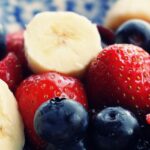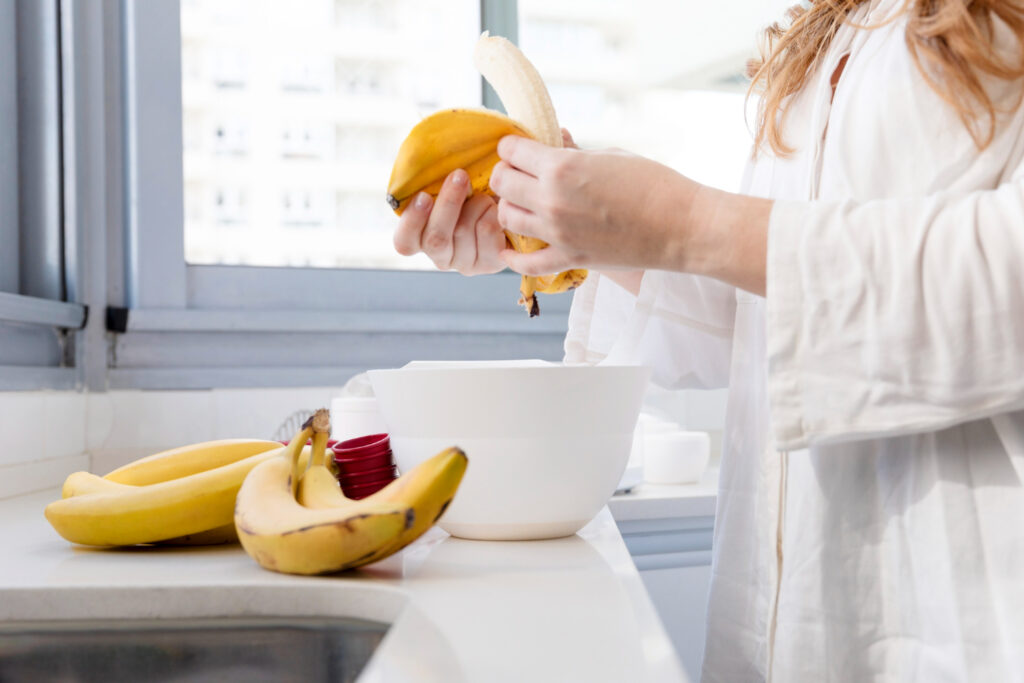
Table of Contents
Overview
Protein is one of the essential macronutrients our bodies require to function properly. While people typically associate protein with foods like meat, dairy, and legumes, many are unaware that certain fruits can contribute to your daily protein intake as well. Although fruits generally aren’t the highest source of protein compared to other food groups, several varieties stand out for their surprising protein content along with other health benefits. Incorporating these fruits into your diet can help you diversify your sources of protein while also ensuring you get the necessary vitamins, minerals, and fiber your body needs.
In this article, we’ll explore the fruits with the most protein, discuss their nutritional profiles, and provide practical ideas on how to include them in your daily diet.
Why Protein is Essential
Protein is crucial for numerous bodily functions. It acts as the building block for tissues, muscles, and skin and is necessary for producing enzymes, hormones, and other chemicals required for metabolism and immune support. Ensuring that you consume an adequate amount of protein helps with muscle repair, tissue growth, and overall health.
For those on plant-based diets or those looking for diverse sources of protein, adding fruits with decent protein content can be a step toward reaching your daily intake goals.
Protein in Fruits
While fruits aren’t known for their high protein content, some varieties offer more protein than you might expect. When combined with other protein-rich foods, these fruits can contribute to your overall daily intake. Additionally, fruits bring more to the table than just protein. They’re also packed with antioxidants, fiber, vitamins, and minerals, making them an excellent addition to any diet.
Here’s a detailed look at fruits that are rich in protein compared to other fruit varieties and their many other health benefits
Guava
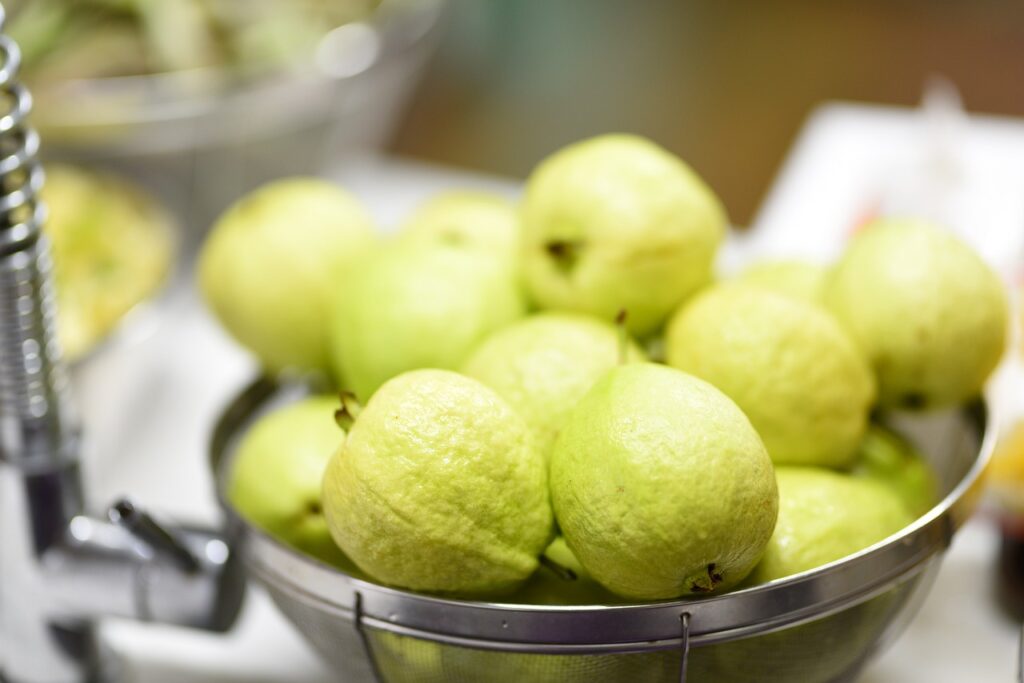
Topping the list of high-protein fruits is guava, a tropical gem known for its impressive nutritional value. A cup of guava provides around 4.2 grams of protein, making it one of the highest-protein fruits available. Beyond protein, guava is also rich in vitamin C, fiber, and antioxidants that help protect the body from oxidative stress
Related : Drinks That May Help You Sleep
Nutritional Benefits of Guava
- Vitamin C Boost: Guava contains more vitamin C than oranges, which supports your immune system, skin health, and the body’s ability to absorb iron from plant-based foods.
- Antioxidants: The antioxidants in guava fight off free radicals, reducing the risk of chronic conditions such as heart disease and cancer.
- Fiber Content: Its high fiber content improves digestion and helps maintain healthy blood sugar levels.
How to Enjoy Guava
- Eat it fresh or add slices to a salad for a sweet, tangy flavor.
- Blend guava into smoothies for a nutrient boost.
- Use guava as a topping for yogurt, oats, or cereal.
Avocado
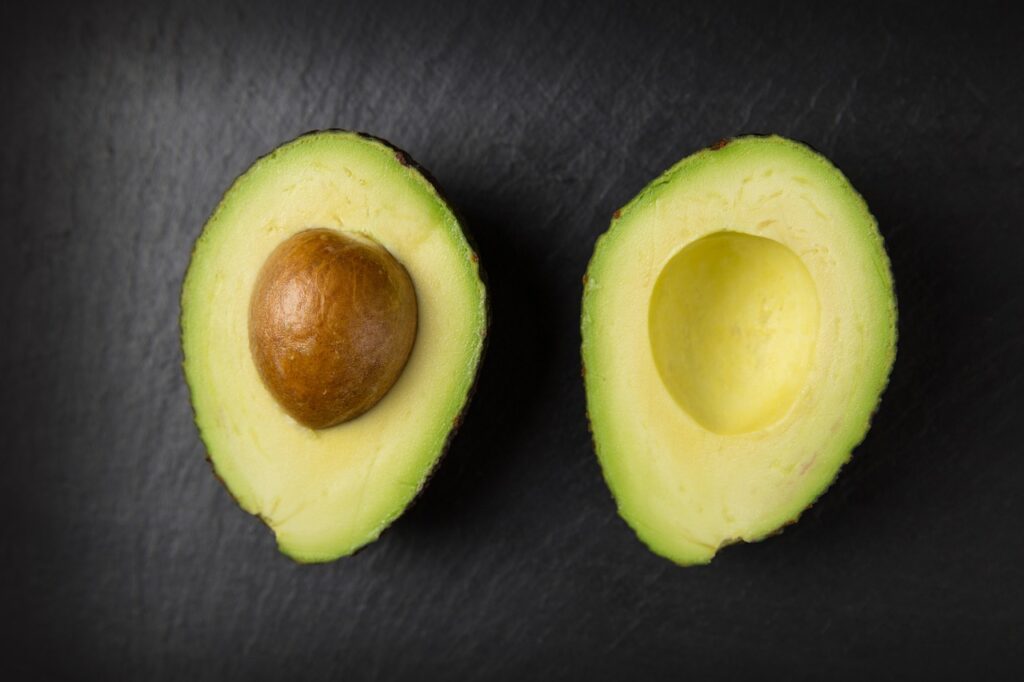
Known for its creamy texture and high fat content, avocado is another fruit that offers a solid amount of protein, with around 3 grams per medium avocado. Although it’s higher in fat than other fruits, the fats in avocado are primarily heart-healthy monounsaturated fats, making it an excellent choice for those looking to balance their macronutrient intake
Related : Veggies That Can Help You Lose Weight
Nutritional Benefits of Avocado
- Heart Health: Avocados are rich in monounsaturated fats, which help lower bad cholesterol levels and reduce the risk of heart disease.
- Nutrient-Dense: They provide a wealth of nutrients including potassium, folate, vitamins C, E, K, and B vitamins.
- Anti-Inflammatory Properties: The anti-inflammatory compounds in avocados may reduce inflammation and promote joint and skin health.
How to Enjoy Avocado
- Spread mashed avocado on toast for a quick, nutritious breakfast.
- Add avocado to salads or grain bowls for extra creaminess and nutrients.
- Use avocado as a base for guacamole or blend it into smoothies for a creamy texture
Apricots
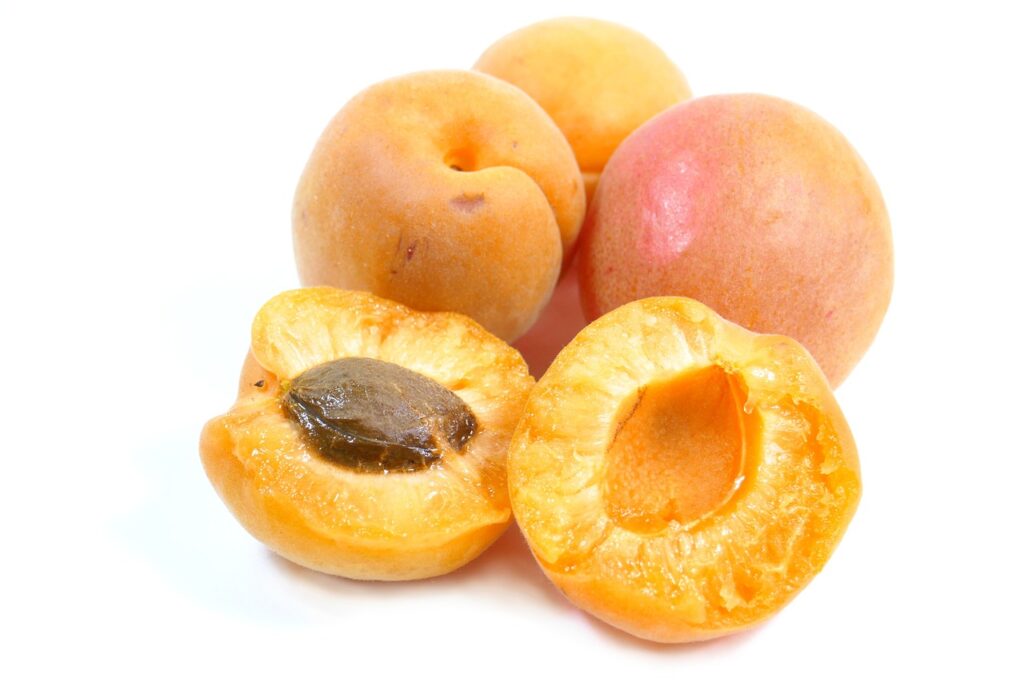
Apricots, especially when dried, offer a higher concentration of nutrients and protein than their fresh counterparts. A cup of dried apricots provides 2.2 grams of protein, along with a rich supply of vitamins A and C, potassium, and fiber
Related : Top Cancer-Fighting Foods You Should Add to Your Diet
Nutritional Benefits of Apricots
- Eye Health: Apricots are a good source of vitamin A, which supports healthy vision and prevents macular degeneration.
- Immune Boost: Their vitamin C content enhances immune function, aiding in the prevention of infections and illnesses.
- Fiber-Rich: Both fresh and dried apricots help support digestion due to their fiber content.
How to Enjoy Apricots
- Snack on dried apricots for an energy boost during the day.
- Add dried apricots to trail mix, cereal, or yogurt for a touch of natural sweetness.
- Use fresh apricots in salads, desserts, or as a topping for oatmeal.
Kiwifruit
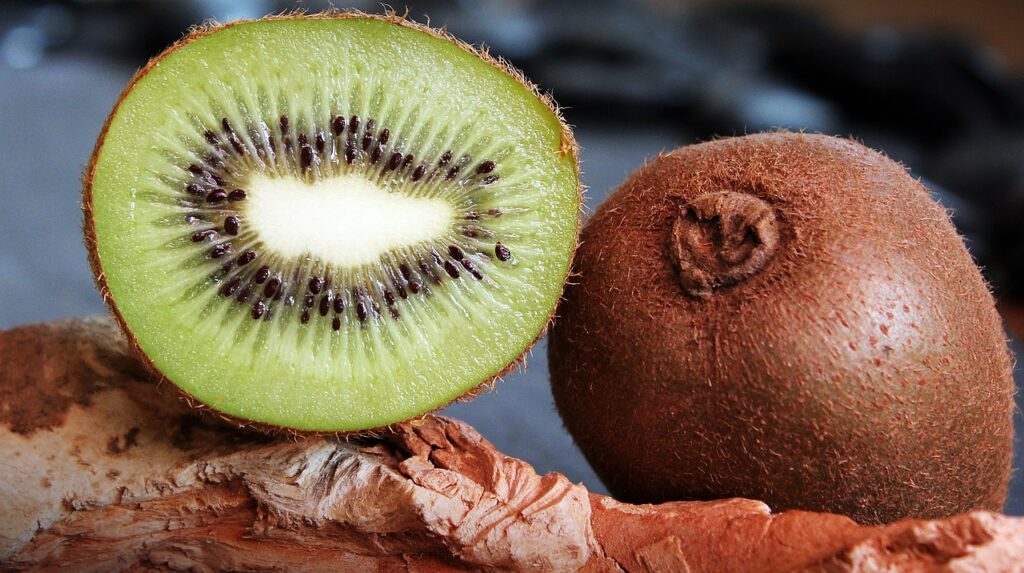
Although small, kiwifruit packs a surprising amount of protein and nutrients. A cup of kiwifruit contains about 2.1 grams of protein, along with significant amounts of vitamin C, vitamin K, and fiber. Its slightly tart flavor adds a refreshing touch to many dishes
Related : Unusual Signs of Dehydration You Should Know About
Nutritional Benefits of Kiwifruit
- Rich in Vitamin C: Kiwifruit provides more than the daily recommended intake of vitamin C, which boosts immune health and collagen production.
- Improves Digestion: Kiwifruit contains fiber that aids in digestion and promotes a healthy gut.
- Antioxidant Properties: The antioxidants in kiwifruit protect cells from damage and may lower the risk of chronic diseases.
How to Enjoy Kiwifruit
- Slice and add kiwifruit to fruit salads or smoothie bowls for a refreshing taste.
- Blend kiwifruit into smoothies for a zesty flavor.
- Eat it on its own as a snack or use it as a garnish on desserts
Blackberries
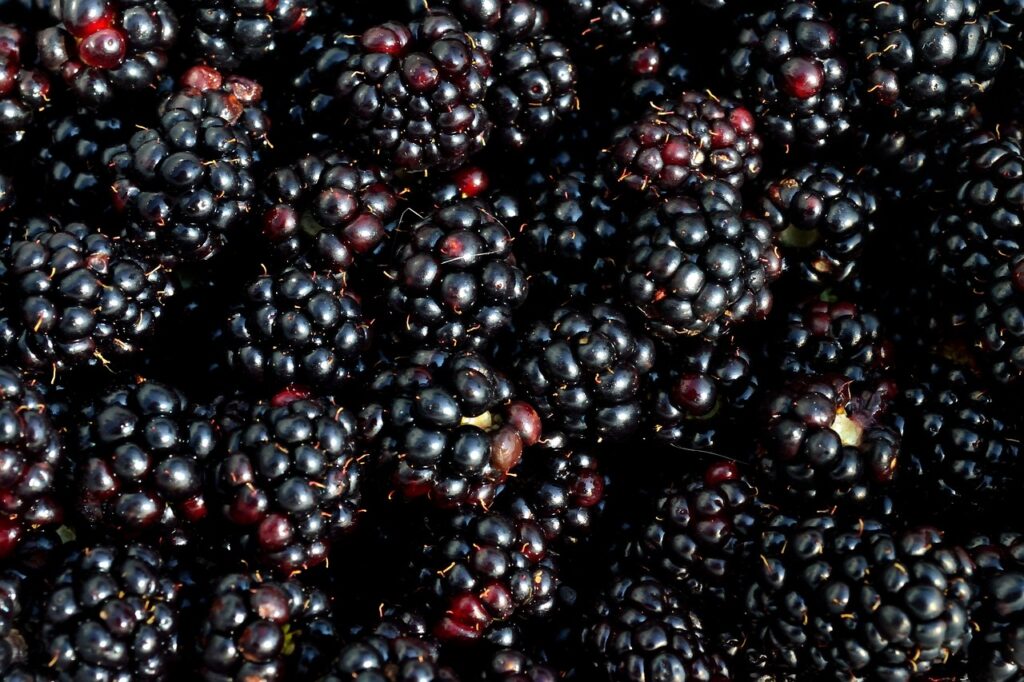
Blackberries are an excellent source of antioxidants and provide about 2 grams of protein per cup. Their deep color is indicative of their high anthocyanin content, a powerful antioxidant that provides numerous health benefits.
Nutritional Benefits of Blackberries
- Antioxidant Powerhouse: Blackberries are rich in anthocyanins, which help fight oxidative stress and may reduce the risk of certain types of cancer.
- Heart Health: The fiber and antioxidants in blackberries help lower cholesterol and support overall heart health.
- Brain Health: Studies suggest that the antioxidants in blackberries may improve cognitive function and memory.
How to Enjoy Blackberries
- Add fresh blackberries to yogurt, oatmeal, or smoothies for a burst of flavor and nutrition.
- Use blackberries in baking, such as in muffins, pies, or cobblers.
- Enjoy them as a snack or mix them with other berries for a nutrient-dense fruit salad.
Bananas
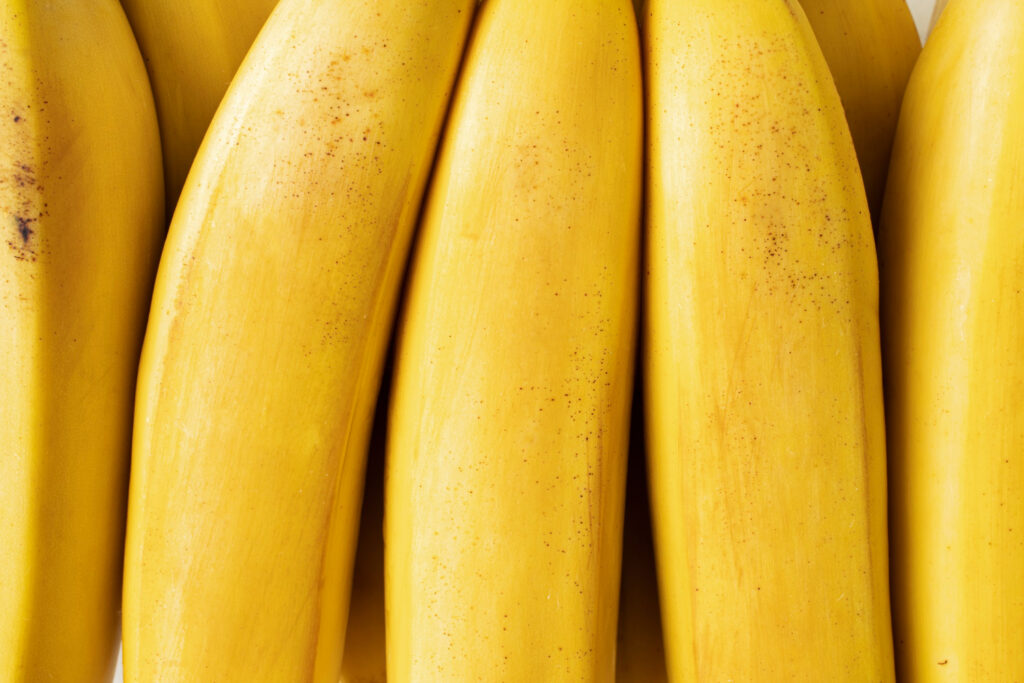
Bananas may not be the highest-protein fruit, but they still offer around 1.3 grams of protein per medium banana. Bananas are widely known for their high potassium content, which supports heart health and muscle function, making them an excellent snack before or after exercise
Related : 10 Ways to Fight Sugar Cravings
Nutritional Benefits of Bananas:
- Quick Energy: Bananas provide a quick source of energy, making them ideal for athletes or as a pre-workout snack.
- Digestive Health: The fiber in bananas supports healthy digestion and can help relieve constipation.
- Potassium-Rich: Bananas are an excellent source of potassium, which regulates blood pressure and supports cardiovascular health.
How to Enjoy Bananas
- Add sliced bananas to your morning cereal, oatmeal, or smoothies for natural sweetness.
- Use mashed bananas as a substitute for butter or oil in baking to create healthier desserts.
- Enjoy bananas on their own or paired with nut butter for a balanced snack
Oranges
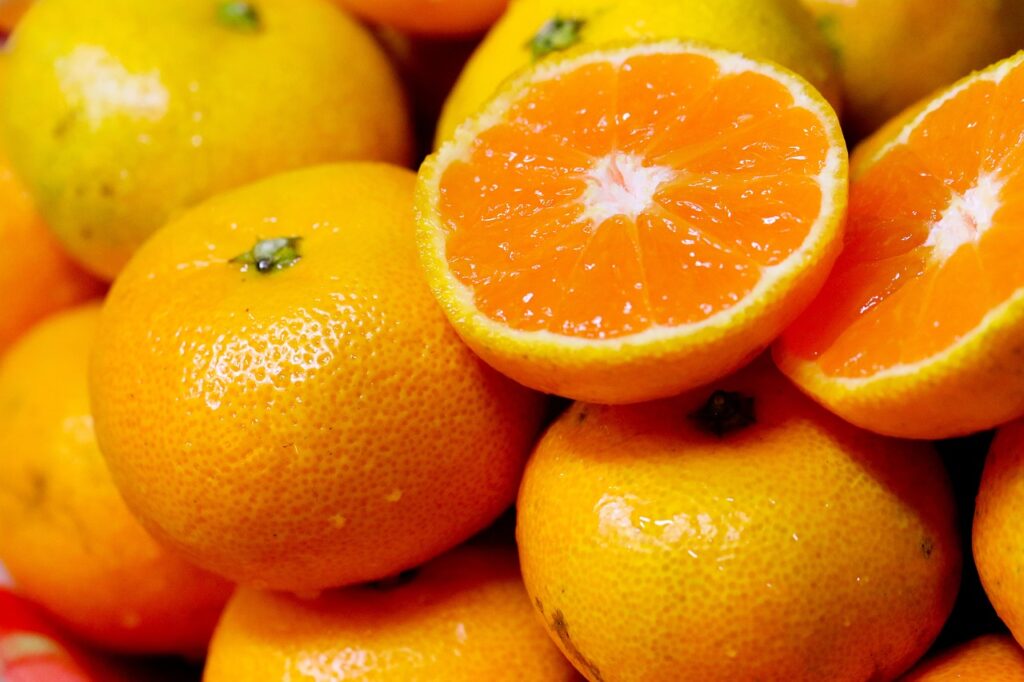
While best known for their vitamin C content, oranges also contain 1.2 grams of protein per cup. Oranges are packed with fiber, antioxidants, and essential vitamins, making them an all-around nutritious choice for supporting overall health.
Nutritional Benefits of Oranges
- Immune Support: Oranges are rich in vitamin C, which helps protect the body from illness and boosts immune function.
- Skin Health: Vitamin C plays a critical role in collagen production, helping maintain youthful, healthy skin.
- Heart Health: The fiber, vitamin C, and antioxidants in oranges help promote heart health by reducing cholesterol levels and lowering blood pressure.
How to Enjoy Oranges
- Eat oranges as a snack or add them to fruit salads for a refreshing citrus flavor.
- Squeeze fresh orange juice for a morning vitamin boost.
- Use orange segments in salads, smoothies, or desserts
The Takeaway
While fruits are not typically the first foods people think of when it comes to protein, incorporating these fruits into your meals can help you increase your protein intake while reaping the benefits of essential vitamins, minerals, and antioxidants. Whether you’re looking to boost your protein on a plant-based diet, add variety to your meals, or simply enjoy a
Frequently Asked Questions
- Which fruit has the highest amount of protein?
Guava is one of the highest-protein fruits, providing about 4.2 grams of protein per cup. It’s also rich in vitamin C, fiber, and antioxidants, making it an excellent addition to a balanced diet.
- Can eating fruits help meet daily protein requirements?
While fruits alone may not provide enough protein to meet your daily needs, incorporating protein-rich fruits like guava, avocado, and apricots can contribute to your overall intake when combined with other high-protein foods like legumes, nuts, and seeds.
- Are avocados a good source of protein?
Yes, avocados contain around 3 grams of protein per medium fruit. In addition to protein, they are packed with heart-healthy fats, fiber, and essential nutrients like potassium, vitamin E, and folate.
- Do dried fruits have more protein than fresh fruits?
Dried fruits like dried apricots can offer slightly more concentrated nutrients, including protein. A cup of dried apricots provides about 2.2 grams of protein, which is higher than fresh apricots due to water loss during the drying process.
- Can eating fruits help with muscle recovery after workouts?
Yes, certain fruits like bananas and kiwifruit can help with muscle recovery. While they contain moderate amounts of protein, their potassium content helps reduce muscle cramps, and their carbohydrates replenish glycogen stores after exercise.
- How can I incorporate protein-rich fruits into my diet?
You can enjoy protein-rich fruits in various ways, such as adding guava slices to salads, spreading avocado on toast, or snacking on dried apricots. Blending these fruits into smoothies or pairing them with nuts and seeds also helps boost their nutritional value.

